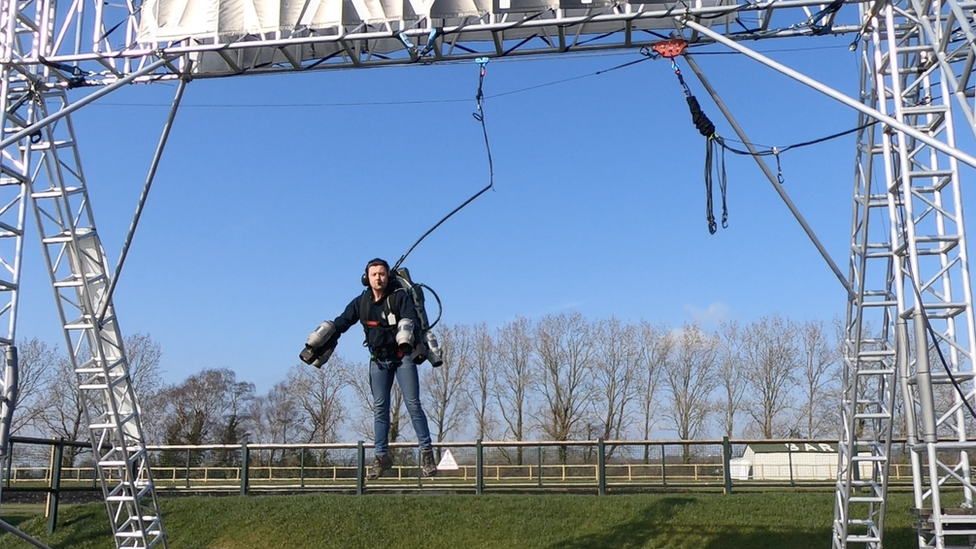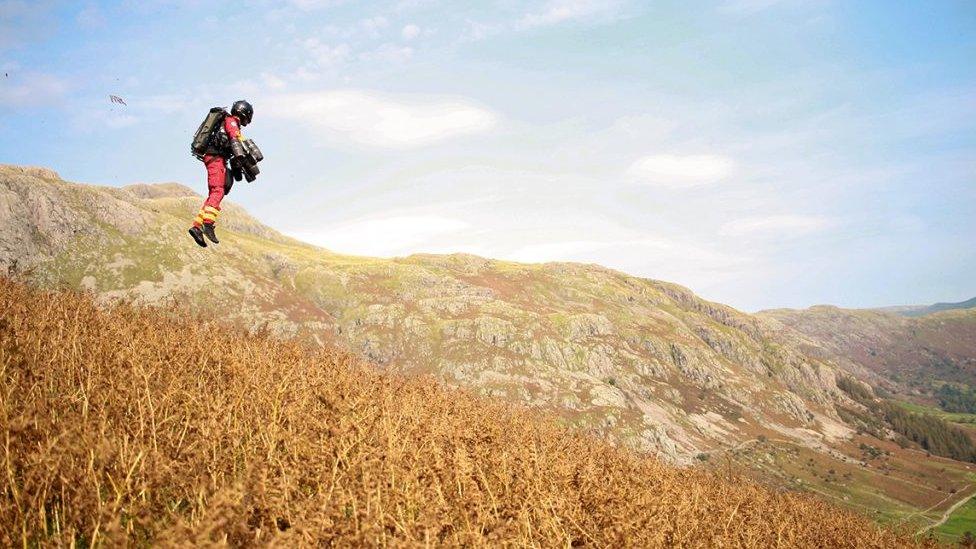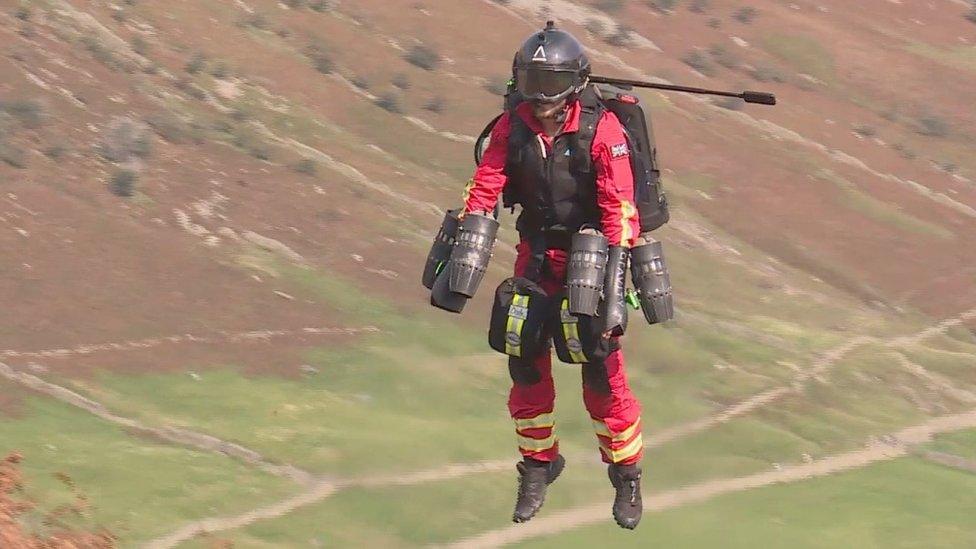Lake District: Jet suit paramedics ready for summer lift-off
- Published
Watch the jet suit being tested in mountain terrain
Paramedics in the Lake District hope to be using jet suits to reach medical emergencies this summer.
One member of Great North Air Ambulance (GNAA) staff has completed his training to use the suit unassisted and two more are to begin shortly.
Once operational, medics will be able to fly up a fell in 90 seconds rather than taking 30 minutes by foot.
The use of jet suits in medical emergencies is believed to be a world first.
Trials of the futuristic-looking kits started in September 2020 but were halted by the Covid-19 pandemic and difficulties in finding a sponsor to cover the costs.
'Awestruck'
The jet suit consists of two mini engines on each arm and one on the back allowing the pilot to control their movement just by moving their hands.
It produces up to 144kg of thrust so it can ascend quickly, saving valuable time, by "flying" close to the land.
GNAA operations director Andy Mawson, who has completed the training, said: "We're still awestruck by it, everyone looks at the wow factor and the fact we are the world's first jet suit paramedics but for us it's about delivering patient care.
"When I started as a paramedic I never thought I'd be working with a helicopter, never mind this."

GNAA operations director Andy Mawson has been training on a special rig
Currently it takes the GNAA helicopter 25 to 30 minutes to reach a patient in the Lake District, once the crew has found an area flat enough to land.
The charity, which works closely with mountain rescue teams, believes there is a major advantage in the Lakes as the jet suit can be used in poor conditions - such as low visibility and strong winds - which would pose a challenge to a helicopter.
The suits have been proved to be effective in 35mph winds and, according to GNAA data, could be used on 15 to 20 medical cases a week.
Paramedics will need to fly with 10 to 15kg of medical kit, including a defibrillator and patient-monitoring devices which are strapped in pouches on the pilot's legs and chest.
Walkers 'captivated'
"It's a machine attached to your body, you have to find your balance point and we're in a job where we challenge ourselves," Mr Mawson added.
"There's a lot of pressure on us to make it work but it has a real purpose to get to people who need urgent medical care.
"It would be lovely to enjoy it but we have a job to do at the end of the day."

It is hoped the jet suits will be used in the national park this summer
Testing the abilities of the suits on the Lakeland fells is new territory, which the manufacturers, Salisbury-based Gravity Industries, welcome.
"Our drive for creating the suit came from wanting to challenge what seemed like the impossible," inventor Richard Browning said.
"We're enjoying working in a new sector and helping the front-line workers in clean energy."
Mr Mawson said: "During trials we asked walkers what they thought, as the jet suits are loud, you can hear them coming and everyone thought it was unbelievable, they were captivated and their feedback was so positive.
"Who knows - hopefully not - but maybe one day a paramedic in a jet suit like me, could be helping one of those walkers."

Follow BBC North East & Cumbria on Twitter, external, Facebook, external and Instagram, external. Send your story ideas to northeastandcumbria@bbc.co.uk, external.
- Published29 September 2020
